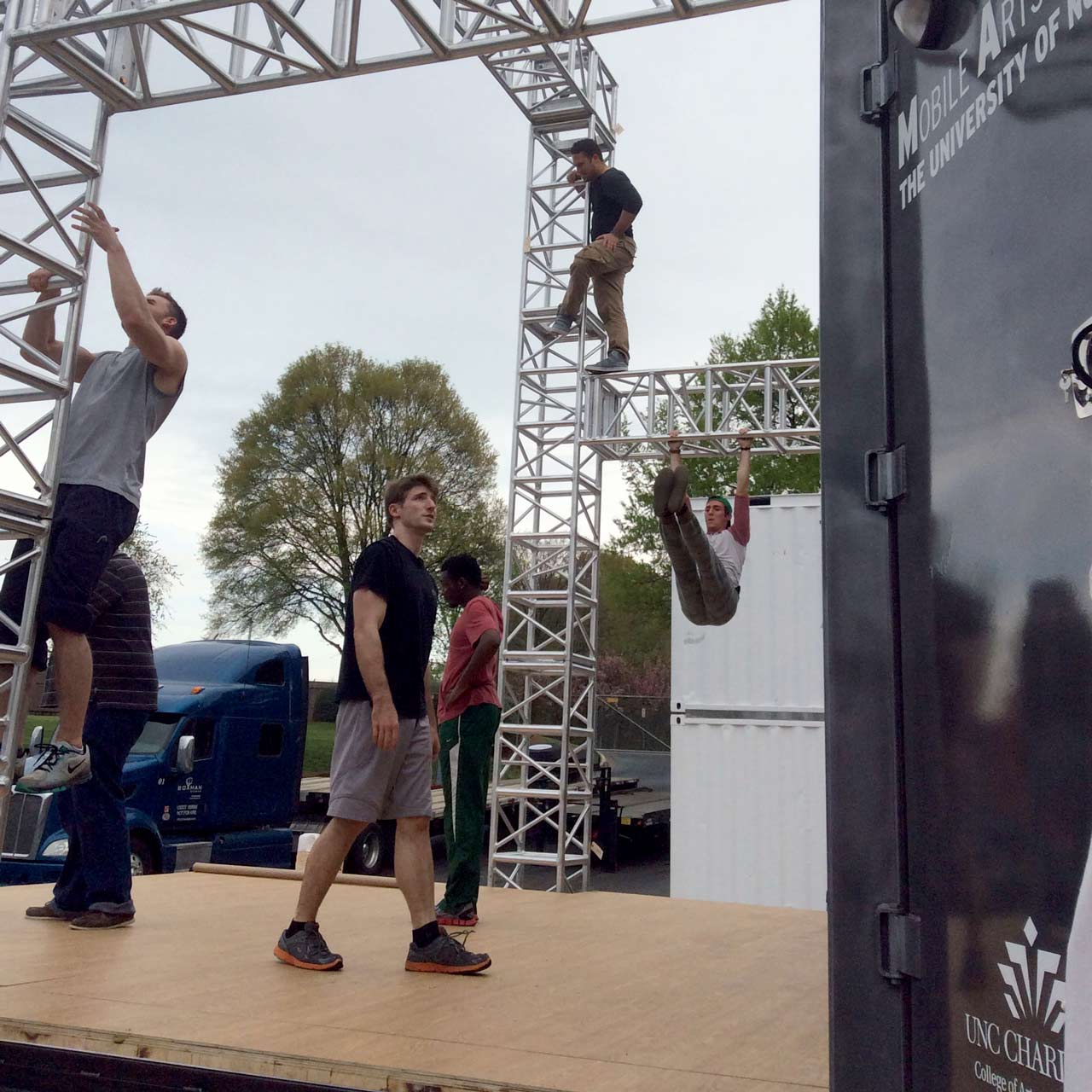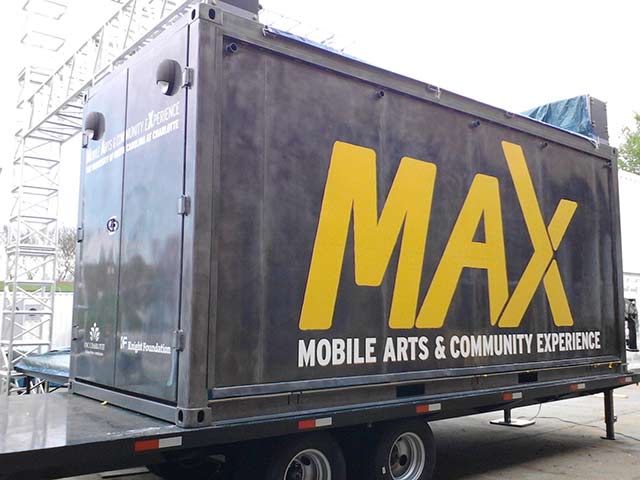
MAXimum impact: Vehicle brings together research, community and the arts in Charlotte, N.C.
José Gamez is associate professor of urban design in the College of Arts + Architecture at the University of North Carolina at Charlotte. He and Assistant Professor of Theater CarlosAlexis Cruz developed the concept for the Mobile Arts & Community Experience – or MAX – as a multiuse mobile venue to bring people together and invigorate the cultural landscape across the Charlotte region. MAX is supported by Knight Foundation.
The new academic year is in full swing and MAX, the Mobile Arts & Community Experience, is about to roll back into action. MAX’s performances last spring on both the Levine Avenue of the Arts and on campus successfully launched one side of our two-fold mission to extend the reach of the College of Arts + Architecture. Now, as we settle into the fall term, MAX is preparing to take on its role as a pop-up community engagement space — the second side of our two-fold mission. That mission involves mobilizing arts-based practices (such as theater and community design) as a means of engaging communities where they are, as a means of empowering community voice, and as a vehicle for positive social change.
Carlos Cruz’s blog post from April pointed to the role that theater can play as both a creative and as a transformative social act. So, last spring, MAX opened its “stage facade,” which unfolded to showcase the theater department’s role in our growing community engagement efforts. This fall, MAX will once again open for performances, as part of the Mini Maker Faire—also supported by Knight Foundation—on Charlotte’s North Tryon Street on Oct. 10. But MAX will also open its other facade to create an outdoor/pop-up lab or classroom environment in support of our Community Planning Workshop, a graduate-level course for community planning and urban design students in which they engage with real communities in partnerships that seek to create positive change in our local landscapes. We call this “action research” – a reflective form of research that involves active partnerships with community agents engaged in scholarly activities while addressing civically meaningful challenges.
Focusing this semester in the west Charlotte neighborhood of Reid Park, the Community Planning Workshop will provide us with a way to test MAX’s pop-up abilities and provide a possible model for other pop-up and—hopefully—longer-term residencies in locations throughout Charlotte.
Recently, MAX has been presented with a new campus-based opportunity: I have been awarded a Faculty Fellowship through the Office of the Provost. As a Provost Faculty Fellow, I have proposed a multi-disciplinary pilot project that would link arts-based initiatives with scientific research across the university. The pilot program will be a platform for faculty from the College of Arts + Architecture to work collaboratively with faculty from, for example, the physical or health sciences, in an effort to tackle complex problems that challenge our diverse 21st-century urban region.
In addition to fostering collaborative multidisciplinary research, this initiative will have the added resource of a community engagement tool – MAX, which can be used as a pop-up lab, classroom, or performance space. MAX, in this sense, can be a mobile “third campus” or a third space of reciprocal engagement with our local communities, not only through the arts but also through action-based research initiatives.

This Provost Faculty Fellowship builds upon the support of Knight Foundation and signals the provost’s continued commitment to make community engagement a hallmark of the University of North Carolina at Charlotte. It is an exciting opportunity for the College of Arts + Architecture and for MAX, with the potential to transform and extend the college’s work through community-engaged research initiatives that combine arts and science. Creativity, innovative problem-solving, and imaginative questioning are vital skills that 21st-century citizens need. In a sense, this pilot program represents one building block upon which a creative culture can be built.
Recent Content
-
Community Impactarticle ·
-
Community Impactarticle ·
-
Community Impactarticle ·


